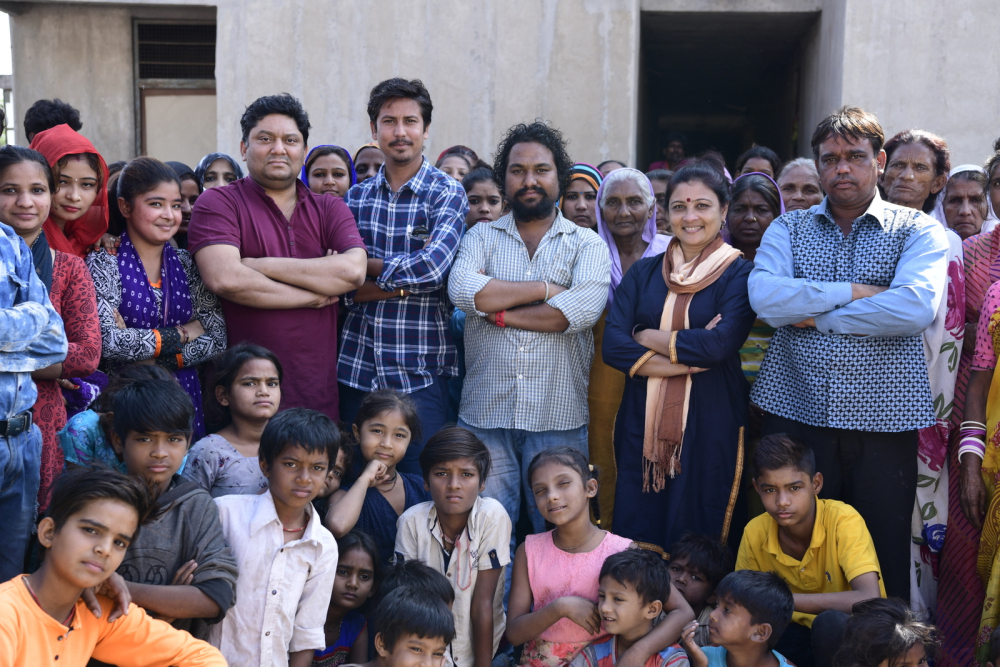India
Budhan theatre group to perform in the U.S with Rohingyas
Artists from Denotified tribes perform through Budhan

Chetana Rathod, Kalpana Gagdekar, Abhishek Indrekar, Sonal Bakshi and Vipul Kapadiya are members from the Budhan theatre group and Bhasha Research centre, Gujarat, who are currently part of a cultural exchange programme along artists from the Rohingya community of Myanmar. This team has been invited by the United States Department of State for Culture for an organised performance programme. These five members will be undergoing a 2 week long workshop with other refugee communities like the Rohingyas, on exchanging cultural heritage of ‘Chhara’s – a denotified tribe from Gujarat, India and about the power of theatre for retaining cultural heritage of such tribes.
The program will be hosted by the University of Northern Colorado. During the workshop, the team will be sharing their ideas for retaining cultural heritage of the Chhara tribe through theatre, performing arts and different activities. They will also be sharing their journey of change through theatre, with a screening of a film made by Budhan theatre team.
Dakxinkumar Bajrange Chhara, a well known film director and one of the founder members of Budhan theatre, told Indie Journal, “We are not so different than the Rohingya refugees, we are refugees here in our country too, because we come from the ‘Chhara’ community which are denotified tribes which used to be criminalized. Our lives have been uprooted, आमचीही मूळं उखाडून टाकायचा प्रयत्न झालेला आहे, here and we are compelled to lose our culture.” He further says, “As we are in the same boat of struggle for existence We can relate to many aspects of the Rohingyas, so it is important to have such kind of cultural sharing with them”.
“They (Rohingyas) live their life with many hardships, They migrate for living, they are compelled to forget their festivals, language and traditions. Our team will help them with the ideas of theatre which can be used for retaining a language, traditions etc. Our team will also be enriched with their ideas and activities.” Dakxinkumar added.
Budhan theatre is a collective art expression of Chhara’s. It was started in 1988 in Chharanagar Basti of Ahmedabad in Gujarat. Well known linguist Ganesh Devi and eminent writer activist Mahasweta Devi lead this movement in the beginning. Daxinkumar Bajrange Chharra has expanded this theatre movement with some local youngs of this community.
People from this community used to steal goods and live because of extreme poverty and lack of proper rehabilitation by the government. This tribe has been stigmatized not only by the government, but also by society for hundreds of years. Dakxinkumar, who resides in Chharangar Basti, thought to change this picture through something which is inherent in the Chhara’s.
Bajrange started with the street theatre activities for kids in this Basti. He taught theatre art to children and youth of Chharanagar, also performing in, writing and making films since 1988.
Budhan Theatre has performed over 50 plays since 1988 with more than 15,000 presentations in India. Budhan Sabar was the tribal man who was labeled a criminal, targeted and was killed in police custody in west Bengal. One of the iconic play was performed by Budhan theatre group was based on extra judicial killing of Budhan Sabar and actors who were performing a play, were demanding justice for Budhan, asking questions of human rights violation. This play was so powerful, that people started knowing this theater group as ‘Budhanwale’.
Budhan group has performed many iconic plays, one of them is ‘Bulldozer’ which lead to save houses of 112 slum dweller families. ‘Pinya Hari Kale’ is one more important play by Budhan group. Pinya Hari Kale was a 35 years old man of Paradhi tribe who was living in Tandulwadi village near Baramati of Pune district was picked up by police in 1998 and killed in police custody. Budhan group performed a play based on the real story of Kale, the play was asking questions about human rights violations of denotified tribes powerfully.
Dakxinkumar Bajrange Chhara describes his whole movement with determination, saying, “This is not entertainment for us, we will keep asking questions about our existence through our plays. It is not only drama but our socio – political expression in art and a movement too.”





